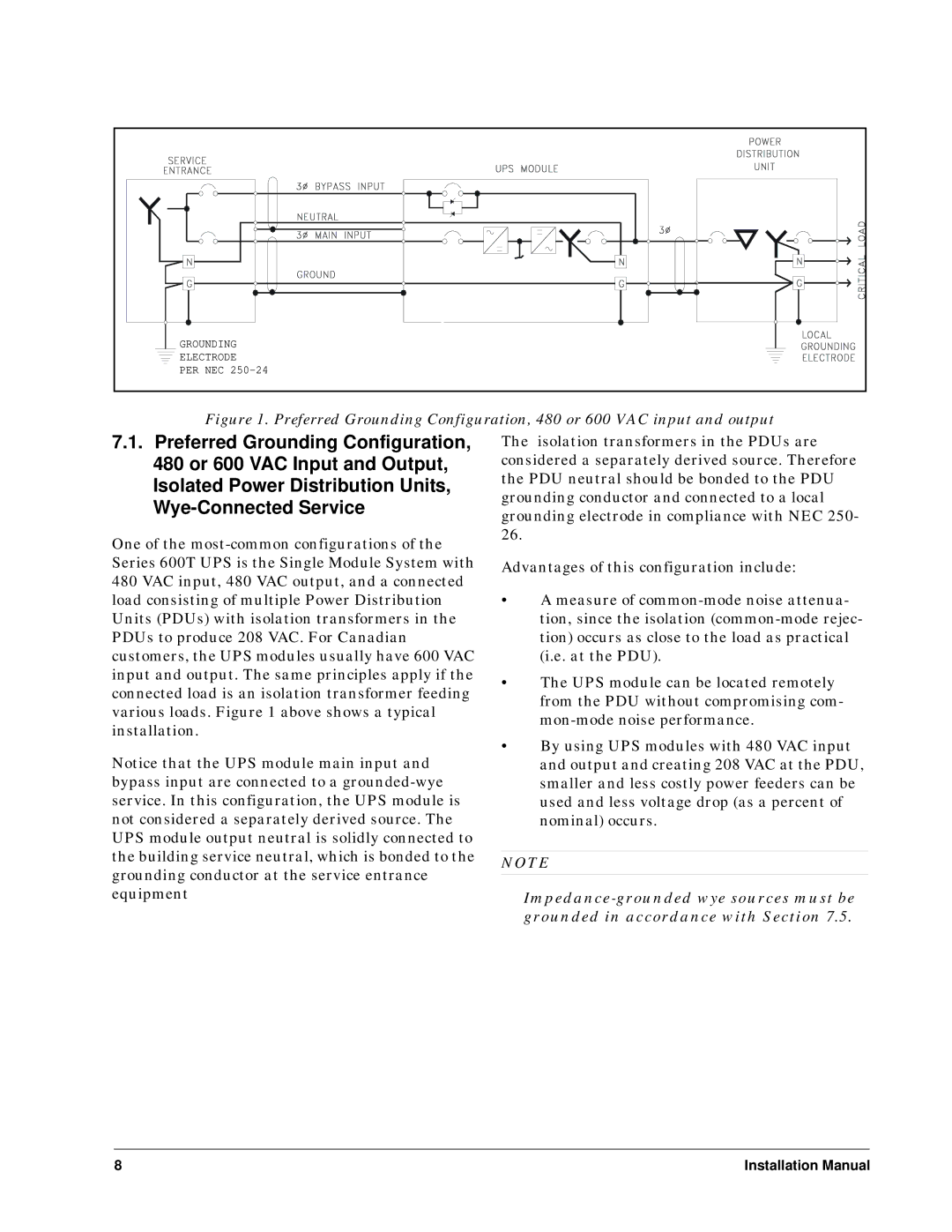
GROUNDING |
ELECTRODE |
PER NEC |
Figure 1. Preferred Grounding Configuration, 480 or 600 VAC input and output
7.1.Preferred Grounding Configuration, 480 or 600 VAC Input and Output, Isolated Power Distribution Units,
One of the
Notice that the UPS module main input and bypass input are connected to a
The isolation transformers in the PDUs are considered a separately derived source. Therefore the PDU neutral should be bonded to the PDU grounding conductor and connected to a local grounding electrode in compliance with NEC 250- 26.
Advantages of this configuration include:
•A measure of
•The UPS module can be located remotely from the PDU without compromising com-
•By using UPS modules with 480 VAC input and output and creating 208 VAC at the PDU, smaller and less costly power feeders can be used and less voltage drop (as a percent of nominal) occurs.
NOTE
8 | Installation Manual |
